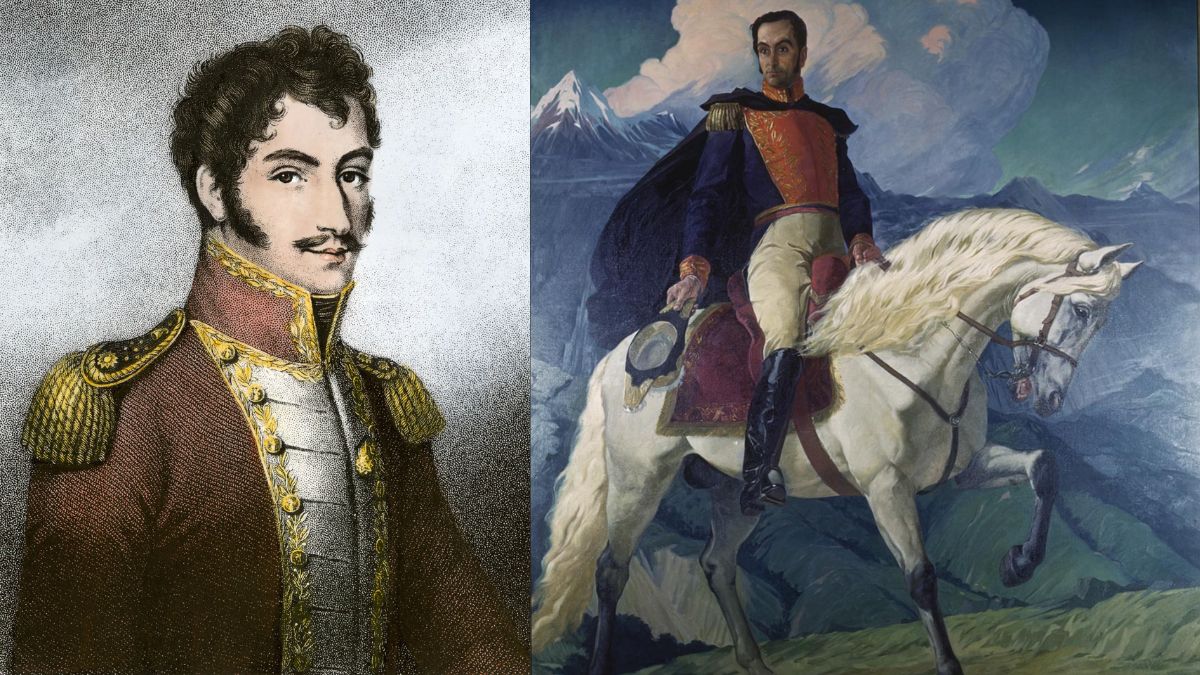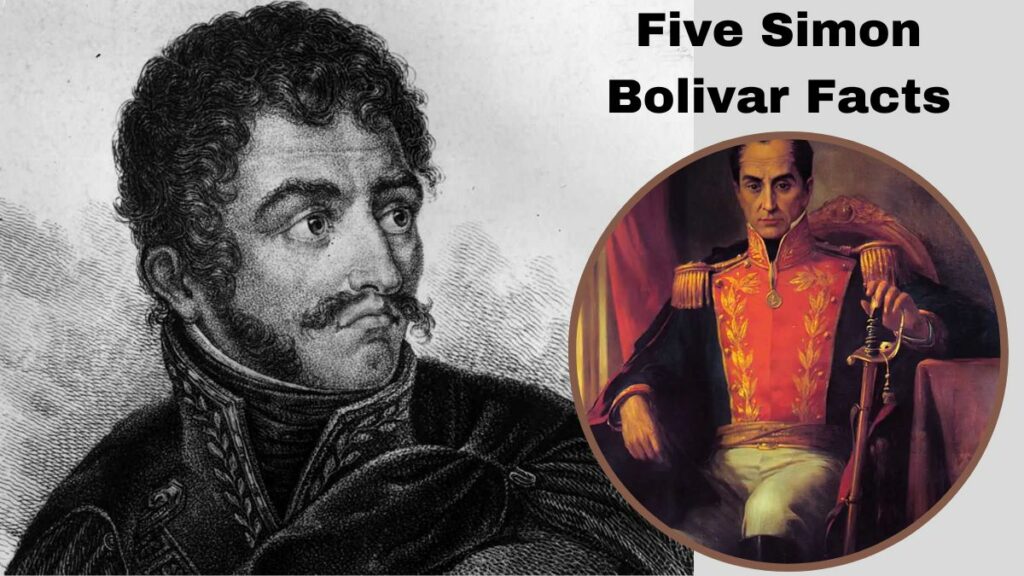The majority of the Americas were freed during the Spanish-American wars of independence in the 19th century. One guy was essential to many of them: Simon Bolivar. Among the most well-known figures in Latin American history is Simon Bolivar.
Bolivar is regarded as a titan in the development of South America and Hispanic America, standing with other American leaders who championed independence. Bolivar, who was born in what is now Venezuela, played a significant role in the emancipation movements within his nation as well as those of other countries.
Without the influence of Bolivar on society and his audacious goals of a united Hispanic America, Latin America would not be the same as it is today. Although most people only know him as the historical figure that he is, learning about Bolivar’s accomplishments leaves out key details of his background. These are five fascinating details about his life.
1. Venezuela and Bolivia Are Named After Simon Bolivar
Bolivar fought in wars across the subcontinent as a result of his efforts to free Latin America. His goal was to free the Americas from Spanish rule and bring all the free nations together under one administration to form a single, unified Latin America.
His aspirations for independence eventually materialized, thanks in large part to his leadership and encouragement. His dream of a united Latin America, however, was short-lived. But his influence is still great and evident.

Bolivia and his birthplace Venezuela, officially known as La Republica Bolivariana de Venezuela, are two Latin American countries named after him. Other Latin American countries continue to pay tribute to El Libertador, and occasionally, relics from the emancipation struggles still mention Bolivar’s achievements.
Even Mexico, a country mainly unconnected to the South American liberation movements, has honoured the Venezuelan revolutionary on multiple occasions by renaming streets, universities, schools, and other establishments in his name.
2. His Family Was Among the Wealthiest in the Area
Bolivar was from a very wealthy household at birth. His father, Juan Vicente Bolivar y Ponte was a colonel and criollo trader. People born in the colonies but also descended from Spain, or passing for Spanish, made up the dominant social class known as criollos in the Spanish colonial caste system.
Only the Spanish-born Peninsulares, who possessed the majority of the power and influence, were greater than them. In addition to holding positions in the colonial government, Bolivar’s father acquired a sizable fortune.
Simon Bolivar travelled to Europe for his education by the time he was sixteen, but he also returned home an orphan. Due to his affluence, Bolivar was able to learn about the revolutionary liberal ideas that were simmering in Europe at the time.
His experiences prompted him to declare in his Juridamento del Monte Sacro that he would free the Spanish possessions in South America. Bolivar amassed wealth after wealth over his life, but it was always at the expense of tragedy. For example, when his older brother died when his children were still too young, Bolivar inherited the family’s wealth.
3. Despite Being Cruel at Times, He Was a Fantastic Leader
The renowned moniker “El Libertador,” or “The Liberator,” belonged to Simon Bolivar. But Bolivar was more than an idealist, despite his unwavering commitment to liberating the Spanish colonies in South America.
Rather, he was a military strategist who was not afraid to take chances to advance in his campaigns. For instance, in the Battle of Boyaca in 1819, the revolutionaries ambushed the Spanish army, leading to the Viceroyalty of New Granada’s final collapse.
Bolivar acted with decisiveness and an immense amount of ambition. A strong earthquake that struck Caracas in 1812 made the revolutionaries weaker. They lost badly against the Spanish in that same year, and by 1813, the First Republic had collapsed.
Not only did the Spanish treat the revolutionaries with scant mercy, but the rebels also adopted a depressing posture. Bolivar enacted “el Decreto de Guerra a Muerte,” or the Decree on War to the Death, allowing the execution of any Spanish citizen who refused to participate in the liberation movement.
Additionally, below are intriguing facts about Richard Garriott and Maria Eva Duarte:
- Richard Garriott Facts: A Journey Through Gaming and the Cosmos
- 16 Fascinating Facts About María Eva Duarte de Perón (Evita)
4. A Few of His Allies and Friends Later Turned Against Him
Politics has historically virtually always involved switching sides and betrayals. It is seldom more apparent than during significant historical shifts. It is not unusual to observe shifts in factions and allegiances during such significant realignments of power and influence.
The Americas were the perfect place for this chaotic atmosphere to exist for the majority of the 19th century, especially in the Spanish Colonies. Francisco de Miranda was involved in numerous battles for independence and liberal ideals before becoming known as a pioneer in the Latin American emancipation movement.
He had fought in the American and French Revolutions, as well as in Africa, America, and Europe. The Arc de Triomphe in Paris bears his name in engraving. Naturally, Bolivar and others called Miranda to lead when the revolutionary battle broke out in his native Venezuela.
However, Miranda yielded in the name of all revolutionary forces when the war approached a critical juncture, fulfilling his prior role as supreme leader. Miranda’s choice perplexed Bolivar, who thought his acts amounted to treason and ordered his arrest and delivery to the Spanish side. Ultimately, Miranda passed away from natural causes while in captivity.
5. Conflict Did Not Cause Simon Bolivar to Die
Undoubtedly, Simon Bolivar led a hectic and rigorous existence. During his lifetime, he was among the most significant leaders in the Americas. As a committed military commander, he assumed command of several significant engagements and entire campaigns against the Spanish.
But despite all of this, Bolivar did not perish in battle or through treachery. Rather, it was initially assumed that he passed away from tuberculosis. Bolivar felt estranged and had lost faith in South American politics later in life.
After the assassination of Jose Antonio de Sucre, a close ally, he was temporarily asked for assistance. However, Bolivar had become ill and was already awaiting his banishment; his condition worsened until he died in 1830 at the age of 47.
Centuries later, in 2008, the administration of Hugo Chavez conducted a study to determine Bolivar’s cause of death because it was dissatisfied with the accepted theory. According to the official report, Bolivar’s cause of death was histoplasmosis, a fungal condition that mimics the symptoms of tuberculosis.
In addition, the report contended that arsenic exposure had made the sickness worse. While it’s possible that rivals poisoned him, arsenic was a common medicinal cure at the time, so Bolivar may have even taken the poison on his initiative.
Hope you like it. Stay tuned with us on Thegeofacts.com for more amazing updates.
